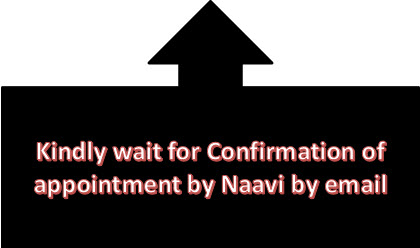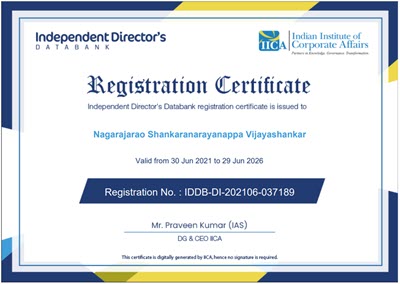[P.S: Kindly Note that subsequent to writing of this post in December 2013, and observing the lack of self regulatory attitude of the Bitcoin managers and the continuing use of the Bitcoin by criminals, Naavi has clarified his view on Bitcoins. Presently in the Indian Context, Naavi is advocating an express ban on Bitcoins. See other recent articles to know why Naavi has changed his view.]
Today’s Times of India carried an interview of the undersigned with the caption “RBI has no legal right to ban use of bitcoin: Na Vijayshankar”.
In order to clarify on why I think so, I would like to present here some additional information. The complete response to the entire interview is also available here:
What is Bitcoin?
Bitcoin might be perceived by the majority as a currency in the digital space. Some websites may be offering certain services in exchange of payment in Bitcoins. Hence consumers are using it as a currency in the limited web space where it is accepted. In this context it is nothing different from the plastic coins that can be used say within a club.
However where as the plastic coins in the club and similar limited currencies in a closed system are all originally acquired by a user by payment in the usual currencies such as the Rupee or Dollar, Bitcoins can be either acquired against payment in a normal currency or created by the user on his own. This is similar to a worker in a club who is told that his salary is paid in terms of the plastic coins which he can either use himself to play or give it away to other members for whatever price and consideration he wants. In order to help the easy exchange of coins, one of the employees may say that he would exchange any coin immediately to the normal currency and keep the stock of plastic coins with himself until another person wants to buy it. In this capacity he works like an exchange house.
Additionally the club may say that it will never issue plastic coins directly to a member of the public for cash and any body who wants it has to acquire it only from the workers who have earned the coins or through any other person who has offered to exchange it. It may also also declared that the total number of coins that will be issued to the workers at any point of time in future will never exceed a stated limit. Then the workers will scramble to earn the limited number of coins available and its perceived exchange value also increases.
All the above aspects are reflected in the Bitcoin system. The only difference here is that the “Club” is the “Peer to Peer Network” where any person with a computer can join and offer to be a worker. If his work is considered satisfactory, he will get his salary in terms of Bitcoins which he can use himself or trade. The rules of the game are well set in the form of a “public notification” and hence everybody knows what it takes to earn the Bitcoins. Hence it is a “Democratic” way of earning. But there is no compulsion on any body that the coins should be accepted and also no guarantee by the club owner that the coins will be reconverted to normal currency if a worker is unable to find a buyer. The club ownership itself is not with any individual but with the entire group of workers who are either previously successful salary earners or not.
However as an when more and more services are offered against payment of the plastic coins, since the supply is limited the demand for the coins will grow and along with it, the value of the plastic coins would also be perceived as higher. If suddenly one popular restaurant says that it will sell Pizzas against the coins, the value will increase. If it stops accepting the coins, the value will drop.
I suppose the above scenario might have given a fair idea of the Bitcoin eco system.
To be technically more precise, a Bitcoin protocol has been released in public which states how Bitcoins can be earned by any member of the public. It would be a reward to provide a service of collating the bitcoin transactions entered into by members of the public into a pre-designated format of an electronic document which will be examined by other members and approved as to whether it satisfies the pre-designated format or not. Every member is free to participate in this race to create the pre-designated format of a collation of transactions and publish it to the group. As in the case of a “Housie-Housie” game, the first person to complete the task within a time of around 10 minutes including whatever number of transactions that he can, would be declared as a “Winner” and all the transactions he has included would become “Approved Bitcoin transactions”. Then the race continues with the remaining transactions. Each such winner would presently be awarded 25 bitcoins. This will be reduced periodically and also the rules for creating the “Pre-designated Electronic document would be made more and more difficult as time passes by so that the number of bitcoins released to the public will increase at a slower and slower rate until the total stock reaches 21 million probably by the year 2140.
If we want to go deeper into the technology, the “Pre Disignated Rule” for the creation of the electronic document that collates the transactions is roughly described as follows.
1.Include as may transactions as are published in the network with each transaction* designating the bitcoin giver (in the form of bitcoin wallet address) , receiver (in the form of bitcoin wallet address) and the amount.
2.Include your own identity (in the form of a bitcoin wallet address)
3. Include the identity of the winner of the previous contest who has been awarded the 25 bitcoin reward
4. Include a variable of your choice
5. Calculate the hash value of a document that includes all the above information in the manner described in the protocol.
If the hash value which is calculated meets the criteria mentioned in the protocol and a few (say about 6) others verify and confirm the same then the work would be declared accepted for reward of the next issue of 25 bitcoins.
It may be noted that in this entire exercise, the Bitcoin protocol is a public document known to everybody and any body can join the network and try their luck at winning the next award. However this may depend on the processing power of their computer since only the first successful creator of the collation of transactions (referred to as a Block) is awarded the coins. Once the Block is verified and confirmed it gets added to the “Block Chain” which essentially is a data base of all transactions from the first bitcoin produced. The entire system is therefore considered a “Peer to Peer system” and does not have any central authority which controls the system or guarantees the value of bitcoin or its continued usage. Everything is voluntary and it is the public which determine how the system moves.
*[It may be noted that each bitcoin transaction initiated by a owner of a bitcoin is a digitally signed message indicating transfer of a certain bitcoin balance from the wallet of the transferor to the wallet of the transferee. Each such Bitcoin wallet has an address. A Bitcoin address is the hash of a public-key . The private key associated with this public key is with the owner of the wallet. When a person opens a Bitcoin wallet account with a service provider, this random key pair is generated. The system of public key cryptography used in bitcoin protocol is based on the Elliptical Curve system which is considered stronger than the RSA system used in the digital signature system in India as per ITA 2000. Similarly in the Bitcoin protocol hashing is done multiple times as against the single time hashing used in the legally approved Indian digital signature system.]
Why RBI cannot ban Bitcoin
If we now understand what a “Bitcoin really is” vis a vis what it is perceived as, we will understand it is just an “Electronic document” with some information such as “So and so is the winner of the award of this bitcoin”.
Electronic documents are recognized in India as equivalent to paper documents vide Information Technology Act 2000 (ITA 2000). Bitcoin is therefore recognized as a document that can even be considered as an “Evidence” in a court of law. If Bitcoin is stolen, it is like data theft. Bitcoin itself is considered “Sensitive Personal Information” and its handlers are subject to due diligence requirements specified under ITA 2000 as amended in 2008.
If Bitcoin is to be banned, it requires an amendment to ITA 2000 and not otherwise. It is in this context I have expressed my opinion that RBI cannot ban Bitcoins per-se.
Since Bitcoin is not a “Promissory Note payable to a bearer”, it does not come within the definition of a “Note” and RBI does not have the right to regulate it as a “Currency”.
However RBI has rights to take objection to the promotion of Bitcoins as a “Currency” and prohibit such an attempt. It can also regulate the foreign exchange part of transactions involving the Bitcoins.
Other aspects of regulation are also referred to in the complete interview.
What RBI Can do
There is no doubt that if RBI strongly feels that Bitcoin is undesirable, it can influence the Government and bring about an amendment to ITA 2000. However this would take not less than an year to process. In the meantime, RBI can threaten the public and ensure that Bitcoin is declared as an “Enemy” and put the fear of retrospective legislation in the minds of people so that they keep their hands off from Bitcoins. The Income Tax authorities can also remind people that what they did to Vodafone, they can do to Bitcoin and put the fear of God in the public. Such measures will successfully kill the Bitcoin system in India. After all we have all seen how the Napster was killed by legislation.
However it would be very unimaginative of RBI if they take this approach though it would satisfy certain hawks in regulation.
What RBI Should Do
If RBI feels compelled to issue any administrative circulars now without any amendments to law, they may have to restrict such circulars to the foreign exchange angle and issue of promotion of the Bitcoin as a “Currency”.
RBI of course has a duty to advise the public through an open advisory not to consider Bitcoin as a currency. This is more for public education so that they are not cheated by smart operators.
Apart from the caution notice that RBI should release, they may consider some steps of their own to meet the situation arising out of the Crypto Currency phenomenon.
It is almost imperative under current law that the Exchange of Bitcoins to any currency other than Indian Rupee such as US $, needs to be regulated as part of the current Foreign Exchange regulations. In this context Bitcoin is a commodity which can be produced in India as well as bought and sold in India either from another Indian or from a foreigner or from a Non resident Indian. Correspondingly RBI has to define the regulations.
However if RBI so desires, it can provide some concessions to Bitcoin Exports (Sale of Bitcoins by an Indian against receipt in foreign currencies) and Bitcoin Mining (Production activity similar to software development), It can also consider production of Bitcoins by Indians through foreign pools as a “Software Service Export”. In my opinion, RBI should consider these measures.
On the other hand, RBI may clarify limits on the import of Bitcoins (Buying of Bitcoins from foreign sources where the payment is designated in a foreign currency). While RBI has the right to ban such imports, it may consider permitting imports through designated exchanges upto a limit of say Rs 75000/-.
RBI may have to however caution the public that buying and selling of Bitcoins must be restricted to persons whose identity is known and records kept. Public must understand that in the current legal environment, Bitcoin is a “Virtual Commodity” and it does not have the immunity that “Negotiable Instruments” posses where a holder in certain circumstances claim the status of a “Holder in due course” which is free from the defects of the transferor.
STPI may consider declaring its own policies if some body wants to set up a Bitcoin (or another cryptocoin) mining facility as an STPI unit.
The danger of a hawkish policy
If RBI is imaginative, it would realize that we should not allow a repetition of the mistake which we made at the time IPv4 addresses were allocated to different countries in the beginning of the Internet era.
At that time India had underestimated the importance of Internet and failed to demand and get its share of the addresses. As a result, India as a country with about 17% of global population ended up with 0.8% of the number of available global IP addresses (28.78 addresses per 1000 population). At the same time, a country like USA with 4.4% of global population retained 35.9% of the available IP addresses. (4916 addresses for a population of 1000). This introduced certain competitive disadvantage to India in the use of Internet.
Similarly the “Crypto Coin Phenomenon” is currently a novelty but has the potential to establish itself as an inevitable development of the cyber world.
Even if India does not move with the times, countries like Switzerland are sure to move in and recognize the crypto currency. As a result wealth will move from India to Switzerland. It would be common for people to shift their deposits in Banks to Bitcoin Banks recognized in Switzerland.
Countries like USA and China will also sneak in and establish their hold on some part of the market despite their current rumblings. Other countries like Canada and Australia will also grab their share before we wake up to the risk of being isolated in the Cyber World Financial Market. Hence India will look foolish if it fails to recognize the emerging scenario and establish its foot hold in the market.
Wishlist
Keeping the vision that Cryptocoins may rule the cyber world in due course, India needs to not only acquire and hold a fair share of currently available Crypto coins but also develop a cryptocoin of its own.
I therefore wish the following steps.
1.Crypto Coin Exchange of India
RBI may in association with SEBI set up a “Crypto Coin Exchange of India” and legitimize all transactions put through this exchange.
The Exchange may open accounts based on a reliable KYC so that only genuine transactions move through the system. Such transactions may be provided with concessions from the foreign exchange angle and the taxation angle. In fact the current taxation regime of stocks can be easily extended to cryptocoins.
Though the current commodity exchanges can handle cryptocoins by just designating them as another category of commodity, it may be desirable to establish a specialized crypto currency exchange with greater involvement of RBI. Such an involvement which might not have been required in the cases of other commodities such as Bullion, Oil or Gas or agricultural commodities but is desirable in the Crypto currency exchange.
2.India Crypto Currency Pool
RBI may set up an “India Crypto Currency Pool” for mining Crypto currencies with membership open only to registered Indians. The server farm itself would be owned by RBI and would work as a National Mint for Crypto currencies. This mint will generate part of Bitcoin or Litecoin or other Crypto coins to be mined from here afterwards.
3. Hybrid variety of Crypto coin
RBI may develop a hybrid variety of Crypto coin which incorporates the best of both worlds namely the Crypto Currency system and the Fiat currency system. For example it can set up an exclusive Crypto Currency of its own using a protocol similar to Bitcoin protocol but with changes that incorporate features for tagging illegal transactions and preventing the system to be abused by money launderers. Such a system may be backed by a paper instrument such as was suggested by the undersigned under the DVIIS. (Digital Value Imprinted Instrument System) eventually replacing the current printed note system almost completely.
I would invite the RBI to constitute an expert committee to discuss the pros and cons of Crypto Currencies and prepare a suitable document for consideration of the coming new Government of 2014. The Bit coin community in India can also put in their views before such a committee and assist the committee to understand the nuances of this new emerging virtual currency system.
Naavi
Kindly Note that subsequent to writing of this post in December 2013, and observing the lack of self regulatory attitude of the Bitcoin managers and the continuing use of the Bitcoin by criminals, Naavi has clarified his view on Bitcoins. Presently in the Indian Context, Naavi is advocating an express ban on Bitcoins. See other recent articles to know why Naavi has changed his view.










Thanks for sharing your view on such a overly hyped subject. I would appreciate if you could tell under what regulation/certification token (from your example of token and club)could be redeemed? I’m looking from existing wallet instruments perspective where we could sell digital rights but not sure if issuer could redeem it.
The redemption of a club token is based on the membership rules which is a contract.
Pingback: An Expert in Cyber Law tells us Why Bitcoin should be Banned in India!